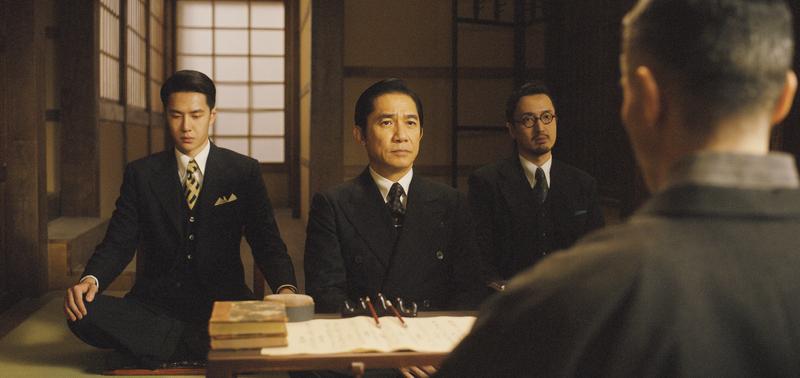Wartime Shanghai noir fails to make the cut


Hidden Blade starts in 1938 with the bombing of Guangzhou and ends sometime around 1946, in postwar Hong Kong. In between, writer-director Cheng Er slips and slides back and forth through time under the constant specter of the Japanese surrender. All the while, he weaves a wartime crime noir reminiscent of Casablanca (1942), and replete with spies, unbending Axis-power villains, sinister streets and femmes fatales. As rich as the film's images are - and as outstanding as Cheng's own cinematography and (uncredited in press notes) production design are - Hidden Blade too frequently gets reduced to a series of still photos of people in impeccable period costumes, sitting in a perfectly re-created midcentury teahouse and smoking artfully without having real conversations. Still, it's a seamless blend of nationalist messaging and old-school noir filmmaking that's incredibly easy on the eye and entirely engaging on its surface, spy-jinks level.
After surviving Guangzhou, He (Tony Leung Chiu-wai) lands in Shanghai to take up the post of security director for Wang Jingwei's puppet government, working under the politically ambitious, occupying General Watanabe (Hiroyuki Mori) and Minister Tang (Dong Chengpeng). Helping He carry out various cloak-and-dagger missions are Ye (pop star and motorcycle racer Wang Yibo) and Wang (Wang Chuanjun). Cheng connects the dots between collaborators and communist sympathizers, reveals the double crosses, and unravels the conspiratorial knot in stages. Following a slightly jarring, overly edited opening, the film settles into a nice, spy-thriller rhythm that crescendos with a fight to the (near) death between He and Ye.
























